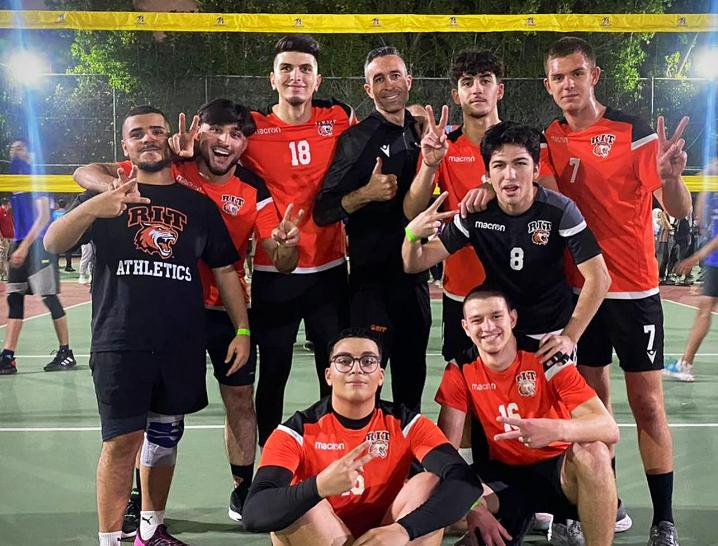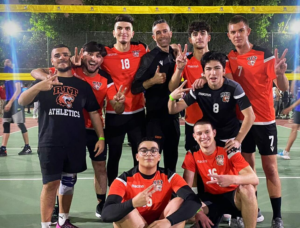Table of Contents
ToggleStriking the Perfect Balance: The Crucial Art of Balancing Student-Athlete Life

Balancing the demands of academics and athletics can be a daunting task for student-athletes, but mastering this art is essential for success, both at Rochester Institute of Technology (RIT) and in life beyond college. We’ll explore seven essential strategies for achieving balance as a student-athlete and why it’s crucial for overall well-being and success.
1. Prioritize Time Management
Effective Planning and Scheduling
One of the most critical aspects of balancing student-athlete life is mastering time management. Student-athletes at RIT must learn to prioritize tasks, allocate time efficiently, and create realistic schedules that accommodate both academic commitments and athletic responsibilities.
Utilize Time-Blocking Techniques
Time-blocking techniques, such as breaking down the day into dedicated blocks of time for studying, training, and rest, can help student-athletes stay organized and focused. By establishing a structured routine, athletes can maximize productivity and minimize stress.
2. Cultivate Self-Discipline
Setting Clear Goals and Priorities
Cultivating self-discipline is essential for student-athletes to stay on track and achieve their academic and athletic goals. By setting clear priorities and establishing routines that align with their objectives, athletes can maintain focus and motivation, even when faced with distractions or challenges.
Practice Consistency and Accountability
Consistency is key to success in balancing student-athlete life. Athletes must hold themselves accountable for their actions and remain consistent in their efforts to meet both academic and athletic commitments. By staying disciplined and focused, student-athletes can achieve their goals and excel in all areas of their lives.
3. Embrace Support Systems
Leverage Resources Available at RIT
RIT offers a variety of support services tailored to the needs of student-athletes, including academic advising, tutoring, counseling, and athletic training. By taking advantage of these resources, athletes can receive the guidance and support they need to succeed academically and athletically.
Build a Strong Support Network
Building a strong support network of coaches, teammates, friends, and family members is crucial for student-athletes. These individuals can provide encouragement, advice, and assistance when needed, helping athletes navigate the challenges of balancing academic and athletic commitments.
4. Prioritize Self-Care
Make Time for Rest and Recovery
Taking care of oneself is essential for maintaining balance and avoiding burnout. Student-athletes must prioritize rest and recovery by incorporating adequate sleep, nutrition, and relaxation into their daily routines. By listening to their bodies and prioritizing self-care, athletes can perform at their best both on and off the field.
Practice Stress Management Techniques
Stress management techniques, such as deep breathing exercises, mindfulness meditation, and physical activity, can help student-athletes cope with the pressures of academic and athletic life. By incorporating these practices into their routine, athletes can reduce stress levels and improve overall well-being.
5. Communicate Effectively
Open Communication with Coaches and Professors
Effective communication is essential for student-athletes to successfully balance their academic and athletic responsibilities. Athletes must communicate openly and honestly with their coaches and professors about their commitments, schedules, and any challenges they may be facing.
Advocate for Yourself
Student-athletes should not hesitate to advocate for themselves and seek accommodations when needed. Whether it’s requesting extensions for assignments or adjusting training schedules to accommodate exams, athletes have the right to prioritize their academic and athletic needs.
6. Maintain Perspective
Focus on Long-Term Goals
Balancing student-athlete life requires a long-term perspective. Athletes must keep their goals in mind and remind themselves of the benefits of their hard work and dedication. By staying focused on their long-term aspirations, athletes can stay motivated and persevere through challenges.
Celebrate Achievements
It’s essential for student-athletes to celebrate their achievements, both big and small. Whether it’s earning a high GPA, winning a championship, or simply making progress towards their goals, athletes should take the time to acknowledge their accomplishments and recognize their hard work and dedication.
7. Learn to Adapt and Flexibility
Be Flexible and Adapt to Change
Flexibility is key to successfully navigating the ever-changing demands of student-athlete life. Athletes must learn to adapt to unexpected changes in their schedules, priorities, and circumstances, and remain resilient in the face of adversity.
Embrace Growth and Learning
Student-athletes should view challenges as opportunities for growth and learning. By embracing adversity and seeking out opportunities for self-improvement, athletes can develop valuable life skills and become better equipped to handle the complexities of balancing academic and athletic life.
In conclusion, achieving balance as a student-athlete is essential for success at RIT and beyond. By prioritizing time management, cultivating self-discipline, embracing support systems, prioritizing self-care, communicating effectively, maintaining perspective, and learning to adapt, student-athletes can achieve their academic and athletic goals while maintaining overall well-being and achieving lifelong success.
CLICK HERE FOR MORE BLOGS POSTS

